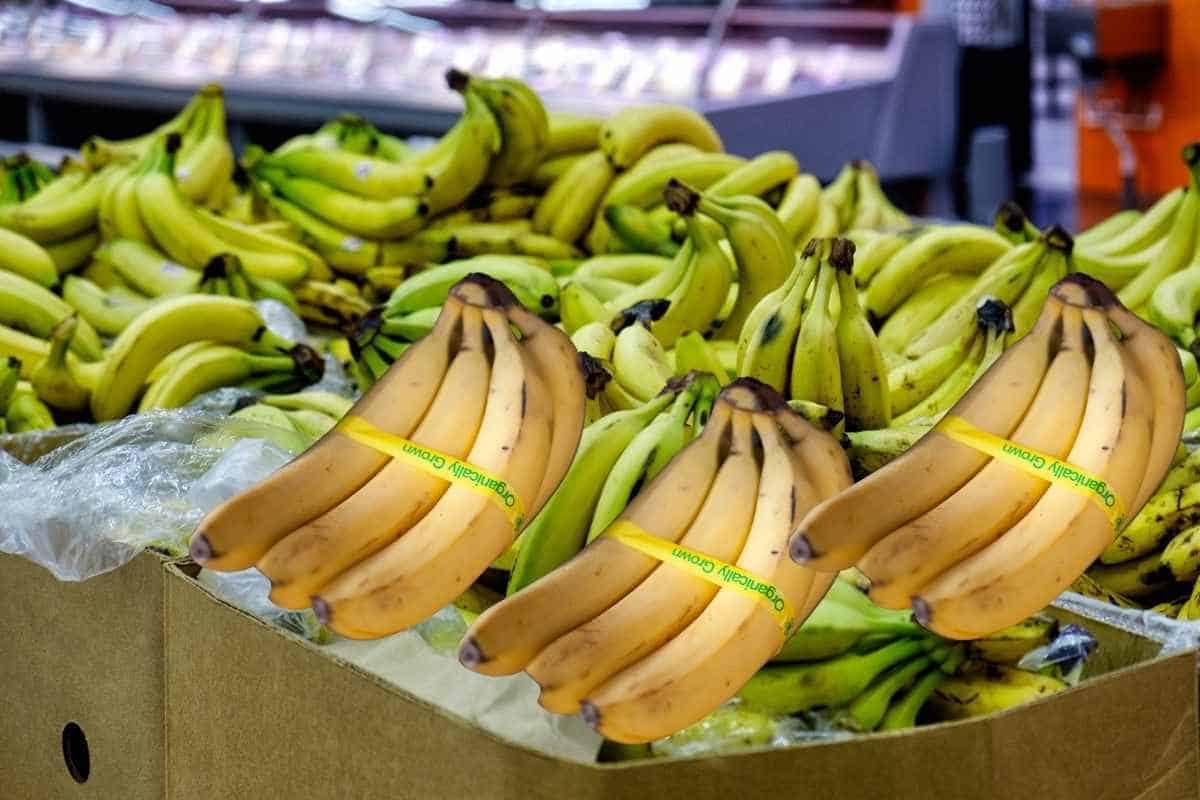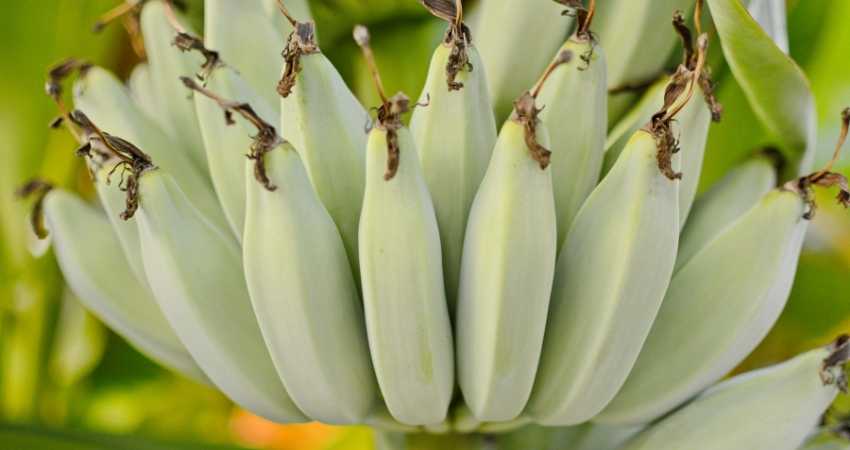This is the Difference Between Organic and Regular Bananas
Many people assume there is little difference between organic and non-organic bananas. With such a thick skin, you peel off and discard, the tender fruit inside is protected from such offensive chemicals. Or is it? What is the difference between organic and regular bananas?
Organic certified bananas mean the bananas were genetically unmodified. They weren’t sprayed with chemical fertilizers, pesticides, or herbicides. In addition, the earth they were grown in was not sprayed with these chemicals for a period of typically three years before planting the crop.
Regular bananas are grown in soil that likely had previous years of pesticides, herbicides and fertilizers sprayed on it. Often, non-organic banana plants are sprayed with pesticides and herbicides to prevent weeds and prevent bugs from eating the growing banana fruit
To completely understand the differences in the banana between regular and organic, this blog post will examine the growing practices common to both.

How Organic Bananas Are Grown
Organic bananas are grown in soil that has been certified for organic use. Typically this corresponds to a minimum of 3 years with zero exposures to an array of artificial fertilizers, pesticides, herbicides, or other human-made chemicals.
The plants themselves are not permitted to be genetically modified (GMO) and must be natural. The plants must be farmed with only a small approved list of soil additives, pesticides and herbicides that correspond to natural use via the organic certification parameters ((USDA: Organic Agriculture)).
Often, organic farming practices focus on healthy growth and sustainable farming practices. In addition, a general reversal of the use of human-made chemicals, additives or other non-organic farming practices ((National Center for Biotechnology Information: Organic foods contain higher levels of certain nutrients, lower levels of pesticides, and may provide health benefits for the consumer)).
How Regular Bananas Are Grown
Regular bananas are grown in soil that likely had previous years of pesticides, herbicides and fertilizers sprayed on it. The new generation of plants will likely leach a certain amount of these chemical residues up from the existing soil.
As long as the random testing for possible chemical exposure proves to be within acceptable levels, the crop is permitted.
Often, banana plants are sprayed with pesticides and herbicides to prevent weeds and prevent bugs from eating the growing banana fruit ((EWG: Banana Cultivation Is Pesticide-Intensive)).
Banana plantations are incredibly labor-intensive. Therefore, they require a vast workforce to tend to and harvest the crop. Grown in more than 150 countries worldwide, bananas are thought to be one of the first fruits eaten by humans.

How Bananas Absorb Pesticides, Herbicides, and Other Chemicals
There’s much conflicting evidence and opinions about how fruit and vegetables absorb chemicals like pesticides, herbicides, fertilizers and more.
For instance, Lori Zanini, R.D., spokesperson for the Association of Nutrition and Dietetics, told Self.com she believes “If it is not a type of fruit/vegetable that you will eat the skin, then there is no need to buy organic.”1.
Despite some individuals, like Zanini, who feel it’s okay to spray chemicals that hurt the environment on fruit and vegetables we don’t ingest the skin of, there’s still a strong debate to support the alternative belief – organic is better for you and the environment.
Unfortunately, viewing the purchase of organic versus non-organic in terms of acceptable levels of chemical contaminants is a misguided approach to personal health.
Consider what a minimum safe amount of a deadly toxin is. Then ask yourself, should you be ingesting it when there’s a perfectly healthy and natural way ((Rodale Institute: Pest Management: What is organic pest management?)) of getting the same fruit or vegetable with zero possible contamination?
This is the flip side of the argument Zanini makes. In this point of view, even the smallest amount of poison is unacceptable. Given the environmental implications of using toxins for the sake of a larger profit, it’s becoming unmistakably clear the long-term damage to our planet is inescapable.

Knowing regular bananas are sprayed with all manner of chemicals, it’s important to understand banana plants are not immune to chemicals just because the fruit has thick skin.
It must be considered the skin could obviously protect against short-term exposure even though bananas didn’t make the dirty dozen list2.
However, if a plant is sprayed with chemicals, those chemicals may leach down into the soil, where the plants’ root systems could absorb them. Although the amounts may be minimal, the long-term effects of minimal exposures to toxic chemicals may prove highly detrimental to human beings and the environment around us.
Take DDT as an example. Dichloro-diphenyl-trichloroethane is a chemical first synthesized back in 1874 for use as a pesticide. The chemical was used for 30 years across the United States before being banned for its nasty side effects to human health3.
Banana plants can absorb chemicals the same way as many other plants – both through root uptake from the soil as well as absorption through the plant skin.
Although root uptake is much more common, the variation of absorption versus uptake depends upon the soil conditions and the chemical in question. Some chemical groups will be much more easily absorbed by the plant than others.
If you have any questions about this article don’t hesitate to comment below or email us. You can find an email on our contact page.
Did you know bananas are a good replacement for electrolytes? Find out more in my article, 17 Gatorade Substitutes.
Read Next – More Food vs Food!
Organic Broccoli – Here’s What You NEED To Know
Extra Virgin Oil Vs. Olive Oil: A Comparison
Farm Raised or Wild Caught Shrimp – Which Is Best?
- Self: These Are The Foods You Should Actually Buy Organic [↩]
- EWG: EWG’s 2020 Shopper’s Guide to Pesticides in Produce [↩]
- EPA: DDT Regulatory History: A Brief Survey (to 1975) [↩]
